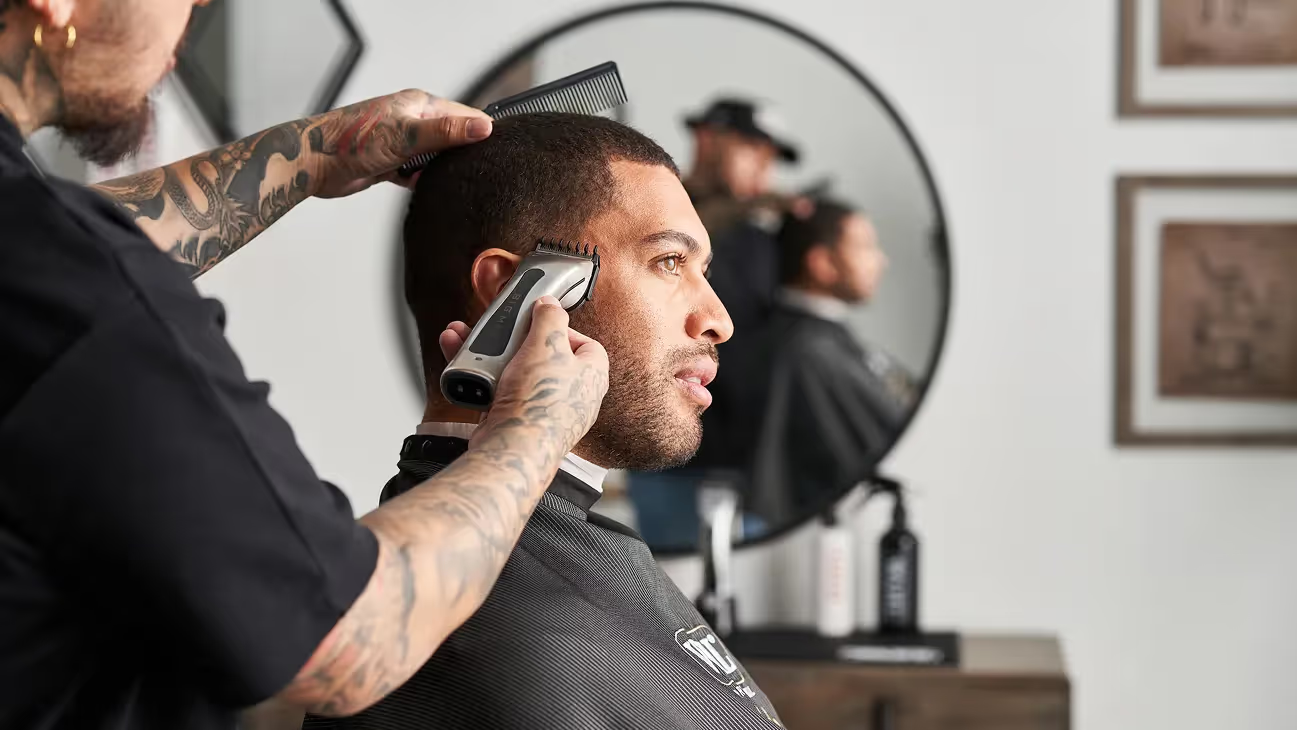Amazon 3P: Frequently Asked Questions and Things to Consider
Interested in Amazon 3P? Find the answers to your frequently asked questions to figure out if 3P is right for your brand.
For U.S. brands selling online, it’s essential to have a controlled presence on Amazon. With a 37.8% market share and more than 60% of consumers starting their product search there, Amazon has to be a priority for your ecommerce strategy. But how should your brand be represented on Amazon? What’s the best strategy for you to succeed in owning and optimizing your business on the platform? A great path for many brands is to work with an authorized 3P seller that knows the ins and outs of Amazon and has a proven track record for helping brands succeed there. Pattern has more than 10 years of experience in helping brands to perform their best on Amazon and other ecommerce marketplaces. We know what works, and we have the teams and experience needed to help you reach true profitability. Interested in Amazon 3P? Find the answers to your frequently asked questions.
How do I start selling with a Seller Central Account?
Factors to consider before starting a Seller Central Account
What are the challenges of selling 1P versus selling 3P?
If I received notice from Amazon Retail that they will no longer be sourcing my products 1P, can I sell 3P?
If I have sold my products 1P in the past, can I sell 3P?
Can I sell CRaP products via a 3P account?
Will Amazon allow unauthorized sellers to sell my brand?
What is an Authorized 3rd Party Seller?
What are the advantages of selling through an authorized 3P seller like Pattern versus selling 3P yourself?
If my 1P account was suspended by Amazon, what should I do next?
How do I start selling with a Seller Central Account?
If you’re interested in setting up your own seller account, Amazon provides a great resource with everything you need to get going: what you need to know before you start, how to add your products, how to attract customers, and what to do after your first sale.
Factors to consider before starting a Seller Central Account:
- FBA Tax Nexus: When you use FBA, or Fulfilled By Amazon, to get your products to consumers, your inventory is sent to multiple warehouses all over the United States. You technically own the inventory, so you’re now liable to file taxes in each state that you hold and sell inventory in. You can also be liable to file taxes on any product sales in these states, even if the products were not sold on Amazon.
- Account Suspensions: As an Amazon seller, you’re liable to meet Amazon’s requirements for selling, including meeting shipping deadlines, following labeling rules, and ensuring proper product preparation. If you fail to meet those expectations, your account can be suspended.
- Buy Box Strategy: If you want to win on Amazon, you need to be consistently “winning” the Buy Box, which is only possible with a great ecommerce brand control strategy that allows you to maintain consistent pricing for your products.
- Customer Service: Sellers are required to respond to customer inquiries within 24 hours—even on weekends and holidays. You’ll be the one responsible for things like approving and handling customer returns and working with disgruntled customers to ensure their needs are taken care of.
- Store Feedback: When you create your own seller account on Amazon, you’ll be starting out without any ratings or feedback to establish your credibility, meaning a lower chance of winning the Buy Box from sellers with more developed accounts and a lower chance of gaining conversions for your product listings.
- Inventory Forecasting: Amazon doesn’t do any inventory forecasting for you. So, you’re the one responsible for creating ‘PO’ shipments into Amazon, likely managing them with ecommerce software. You still own the inventory when it is in FBA up until it sells to a consumer.
- Inventory Feeds: You will likely need to invest in or develop an inventory feed directly into Amazon Seller Central that automatically adjusts inventory levels and ability to ship. This can be done with Pattern’s ecommerce tools. If you cancel too many orders due to out of stock issues, your account will be at risk of suspension.
What are the challenges of selling 1P versus selling 3P?
Challenges of selling 1P:
- Limited control over product and brand control forecasting
- Limited control over POs
- Pricing at the discretion of Amazon
- Launching New Products and getting Amazon to order enough inventory
- Limited data provided by Amazon
- Self Service First Platform
Challenges of selling 3P:
- Inventory ownership risk
- Prep & labeling consistent with Amazon shipping standards
- Tax Nexus and Liability
- Customer Service Management
- Returns and Stranded Inventory
- Competing for BuyBox ownership
If I received notice from Amazon Retail that they will no longer be sourcing my products 1P, can I sell 3P?
Yes you can. But, you should know that Amazon reserves the right to source your products for 1P in the future.
If I have sold my products 1P in the past, can I sell 3P?
Amazon’s updated Standards for Brands Selling in the Amazon Store states, “we may choose to source products from some Brands for sale by Amazon only. Other Brands can operate as sellers in the Amazon store if they can consistently maintain our standards for customer experience.”
Brands Eligible to Sell on the Amazon Store:
- Brands who have been told by Amazon that they are ineligible for a 1P offer
- Brands who have never sold inventory directly to Amazon
Brands Ineligible to Sell on the Amazon Store:
- Brands who Amazon selects to source products as a 1P Vendor Relationship
- Brands who do not price competitively on the 3P marketplace
Can I sell CRaP products via a 3P account?
Some Vendor Managers allow hybrid accounts. Others prohibit having both a 1P and a 3P account, which may impact your ecommerce growth strategy.
Will Amazon allow unauthorized sellers to sell my brand?
Yes. Amazon will not block unauthorized sellers from distributing and selling your products on the marketplace—even if they are not price competitive. In specific categories such as Luxury Beauty, Amazon will gate a brand from having unauthorized sellers.
What is an Authorized 3rd Party Seller?
An authorized 3rd party seller is a 3P seller that will buy your products directly from you and resell on Amazon’s marketplace. An Authorized seller should be involved with helping curate and provide content and messaging consistent with your brand’s objectives. They should adhere to any MAP pricing policies and work directly with you to forecast for a consistent availability of goods on Amazon. Often, a distribution policy can be created to permit certain authorized sellers to sell on your behalf on Amazon, while prohibiting unauthorized sellers.
What are the advantages of selling through an authorized 3P seller like Pattern versus selling 3P yourself?
- Wholesale Payment Relationship: Inventory ownership passes to an authorized distributor/reseller, allows you to be paid faster for your product sales.
- No Tax Implications: Authorized resellers handles all tax implications of FBA.
- No Account Management: With an authorized 3P seller, you don’t have to worry about navigating customer service needs, fielding reviews, managing seller central, or developing ways to avoid account suspension.
- No Additional Prep/Shipping: The authorized reseller typically takes care of your product distribution.
- Additional Services: Some authorized 3P sellers, like Pattern, provide additional services included in the cost of goods, including content creation, advertising management, ecommerce software, and more.
- Longevity Perks: Pattern and other authorized 3P sellers already have an established seller account, meaning they have high amounts of data, feedback, and account authority to help win the Buy Box consistently and provide a positive experience to consumers.
If my 1P account was suspended by Amazon, what should I do next?
- Learn about the different types of 3P sellers
- Define your current resources and capabilities to determine which type is right for your brand
- If you’re considering managing a 3P relationship yourself, determine what needs you can reasonably meet now. What would the path look like to ramp up your abilities?
- Move quickly—the longer you’re out of stock after your 1P account is shut down, the lower your rankings and product listing sales will drop.
Explore 3P Partnership with Pattern
As a top, authorized 3P seller on Amazon, Pattern has all of the capabilities your brand needs to succeed on the marketplace. We know the nuances of each category, we have the technology to inform the right data-driven decisions for your brand, and we have expert teams that can guide you along the way—through developing the right content for your listings, optimizing traffic and conversions for those listings, and creating a great customer experience from start to finish. Interested in going 3P? Get in touch with us here.


.jpg)





.jpg)

.jpg)